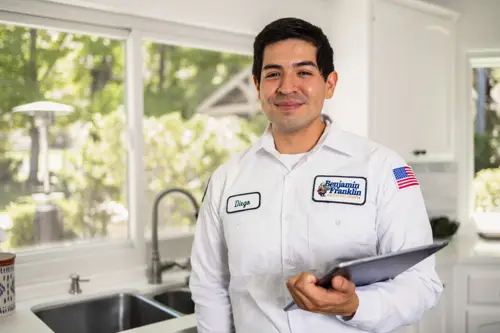 Tampa’s water is classified as very hard, which means that it contains a high concentration of minerals. While these minerals will not affect your health, they do have other effects. For example, they can spot your dishes and impact how well your laundry is cleaned. Hard water can add a film over your faucets, sinks, tubs and shower glass that is difficult to remove.
Tampa’s water is classified as very hard, which means that it contains a high concentration of minerals. While these minerals will not affect your health, they do have other effects. For example, they can spot your dishes and impact how well your laundry is cleaned. Hard water can add a film over your faucets, sinks, tubs and shower glass that is difficult to remove.
It can even affect how well your soap foams up in the shower and the life of your appliances. The simple way to address hard water in the home is with the installation of a water softener. To function properly, the water softener needs a healthy and regular supply of salt.
When to Add Salt to Your Water Softener
Generally, salt should be added to the water softener monthly, but there are several factors that affect the frequency. You can easily check the salt level in the brine tank by lifting the lid. The water level should be below the salt. If you do not see any dry salt, it is time to add more salt. While you want an ample supply of dry salt, you do not want to fill the tank more than half full. If you overfill the brine tank, you will likely deal with additional maintenance needs because of salt stuck on the tank’s walls.
Factors That Impact Frequency
The amount of salt needed by your water softener is directly tied to how much water your home uses. A home with two people will use less water and less salt, than a home with six occupants. In addition, older water softeners typically use salt less efficiently. Your water softener’s regeneration period plays a role as well. The typical water softener that regenerates nightly will likely need salt added every two weeks. Without an adequate salt supply, the regeneration cycle cannot be completed. This means that the water entering your home will contain more minerals.
What Type of Salt to Use
The type of salt installed in your water softener directly affects its functionality and its maintenance needs. For example, less pure salt is more likely to form a salt bridge. This is a firm crust that prevents brine production. Salt pellets are preferred over other types of salt, such as solar salt and rock salt. They dissolve better, which allows the water softener to more effectively treat hard minerals in the water.
Schedule Water Softener Service Today
At Tampa Benjamin Franklin Plumbing, we are your complete source for water softener services. From installation to maintenance and repair, our team will do quality work efficiently. Book service for your water softener online, or call us today for an appointment.